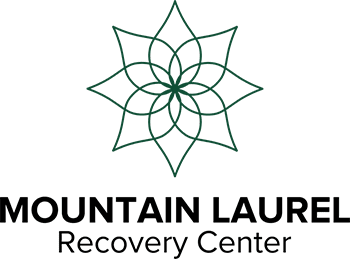
Returning Home
To continue to progress in your recovery, you need:
- A safe, clean, and substance-free living environment
- Access to transportation
- Access to healthy food
- Support from friends and family
- A plan to access community resources for sober living
Before you graduate from Mountain Laurel Recovery Center’s Pennsylvania residential drug and alcohol treatment program, you’ll receive a personalized continuum of care plan that includes referrals to community resources you can utilize to provide ongoing recovery support. This includes 12-Step groups and other self-help programs as well as counselors and care providers in your area. Your continuum of care plan should also address how to treat any co-occurring mental health conditions such as anxiety or depression.
Our family program helps family members better understand the disease of addiction, but it’s important to discuss expectations for your return home before you graduate from residential treatment. This might include setting a daily schedule, dividing up household chores, scheduling time for family meals, or answering specific questions your children might have about your recovery. Clear communication will make the transition home easier for everyone involved.
Extended Care Services
If you don’t have the necessary support structures in place at home, you may wish to consider utilizing our extended care services. Clients who participate in extended care live together in a safe, clean, and healthy space while attending intensive outpatient treatment with 12-Step participation and sponsorship support.
Sober living homes provide a less intensive form of care than residential treatment but offer more support than standard outpatient treatment. You can think of them as a stepping stone on your journey towards an independent sober life. In a sober living home, you can continue to practice the skills you learned in residential treatment so you are ready to face the challenges of independent living with confidence.
Overcoming Fear and Anxiety
It is normal to feel somewhat afraid or anxious about graduating from residential treatment, but you can’t let this hold you back from making the changes you need to live your best life. Here are some steps you can take to ease the transition.
- Write in your journal. Getting your thoughts down on paper helps you see situations in a more objective way. Referring back to past journal entries also reminds you of how far you’ve already come in your recovery journey.
- Meditate. Mindfulness meditation helps you manage anxiety by quieting and refocusing the mind. It lets you live in the present moment, without judgment or anticipation.
- Set realistic goals. Breaking down what you want to accomplish into a series of smaller, short-term goals can keep you from getting overwhelmed. For example, if you want to find a job, your short-term goals might include writing a resume, practice answering common interview questions with a friend, and applying for at least two jobs per week. Post your list of goals in a place where you can easily see them and check your progress periodically.
- Talk to your sponsor. As supportive as your friends and family may be, it is difficult to understand the recovery experience unless you’ve personally been in treatment for an addiction. Your sponsor’s firsthand knowledge of this stage of the recovery process can help you feel less alone in your struggles.
- Be kind to yourself. Remember that making mistakes is part of being human. If you start to struggle, don’t assume this means you aren’t cut out for recovery. Reach out to your support team and brainstorm ways to continue moving forward.
Staying the Path
You have already taken the hardest step by admitting your substance use disorder and completing residential treatment. Be proud of what you’ve accomplished as you continue to work towards your sober living goals.
